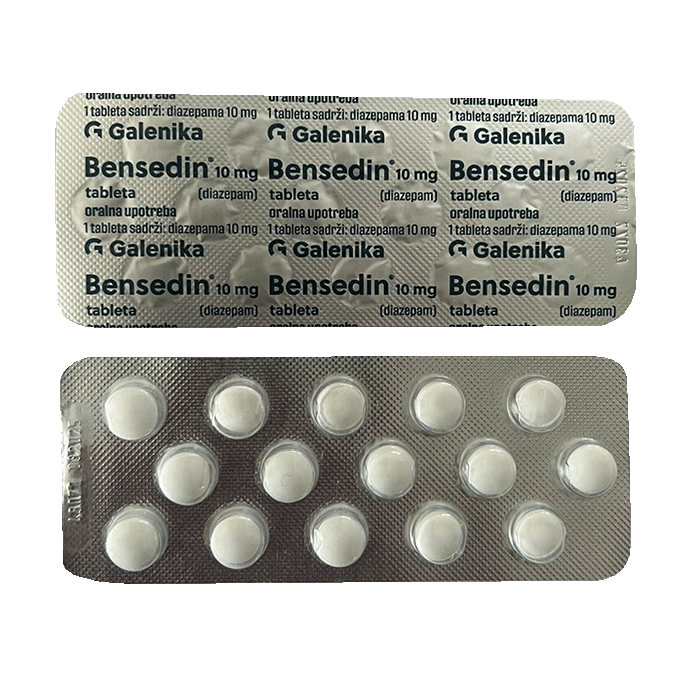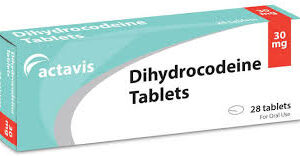WHAT IS DIAZEPAM TEVA 10 mg, tablet AND WHAT IS IT USED FOR?
Pharmacotherapeutic group, ANXIOLYTICS – ATC code: N05BA01 (N: central nervous system).
This medicine belongs to the benzodiazepine class.
This medication is recommended for the treatment of anxiety when it is accompanied by troublesome disorders, or for the prevention and/or treatment of symptoms linked to alcohol withdrawal.
Before treatment, tell your doctor
· if you have kidney failure (your kidneys are not working properly);
· if you have persistent liver disease;
· if you have ever had problems with alcohol;
· if you have respiratory failure (lung disease).
In this case, your doctor will have to put in place reinforced medical monitoring.
During treatment
· Memory problems (memory lapses) and changes in psychomotor functions (impaired control of your movements) may appear in the hours following taking the medication.
· This medicine may cause reactions in some people, particularly children and the elderly, that are contrary to the intended effect: insomnia, nightmares, agitation, nervousness, aggressiveness, anger, delusions, hallucinations, confusion, psychosis, disinhibition, euphoria or irritability, anterograde memory disorders (no longer remembering recent events), tension, changes in consciousness, or even potentially dangerous behaviors (aggression towards oneself or those around oneself, as well as behavioral disorders and automatic acts). If one or more of these reactions occur, contact your doctor as soon as possible.
Risk of dependency
Using DIAZEPAM TEVA 10 mg tablets, especially over a long period of time, can lead to physical and psychological dependence. Various factors appear to promote the development of dependence:
· duration of treatment;
· dose;
· if you have been addicted to central nervous system depressant drugs or other substances (including alcohol) in the past.
Addiction can also occur even if you don’t have any of these contributing factors.
For more information, talk to your doctor or pharmacist.
Cases of benzodiazepine abuse have been reported in individuals who abuse multiple drugs or non-drugs.
Use in the elderly
The use of DIAZEPAM TEVA 10 mg tablets may increase the risk of drowsiness and/or muscle relaxation, which may increase the risk of falls. Falls often have serious consequences in the elderly, so this medicine should be used with caution in this situation.
Children and adolescents
Not applicable.
Other medicines and DIAZEPAM TEVA 10 mg, tablet
Tell your doctor or pharmacist if you are taking, have recently taken or might take any other medicines.
Concomitant use of DIAZEPAM TEVA and opioids (strong painkillers, substitution therapy drugs, and some cough suppressants) increases the risk of drowsiness, breathing difficulties (respiratory depression), coma, and may be fatal. For this reason, concomitant use should only be considered when other treatment options are not possible.
However, if your doctor prescribes DIAZEPAM TEVA with opioids, the dosage and duration of concomitant treatment should be limited by your doctor.
Please inform your doctor about all opioids you are taking and strictly follow the doses recommended by your doctor. It may be helpful to inform friends or family members so they are aware of the signs and symptoms mentioned above. Contact your doctor if you experience such symptoms.
DIAZEPAM TEVA 10 mg, tablet with food, drink and alcohol
Alcohol consumption is strictly not recommended during treatment.
Pregnancy, breastfeeding and fertility
If you are pregnant or breastfeeding, think you may be pregnant or are planning to have a baby, ask your doctor or pharmacist for advice before taking this medicine.
This medication is not recommended during pregnancy. If you discover that you are pregnant or are planning to become pregnant, consult your doctor so that he or she can reassess the benefit of treatment.
If you take DIAZEPAM TEVA 10 mg tablet during the first trimester of pregnancy: Numerous data have not shown any malformative effect of benzodiazepines. However, some studies have described a potentially increased risk of cleft lip and palate in newborns compared to the risk present in the general population. A cleft lip and palate (sometimes called a “harelip”) is a congenital malformation caused by incomplete fusion of the palate and the upper lip. According to these data, the incidence of cleft lip and palate in newborns would be less than 2/1,000 after exposure to benzodiazepines during pregnancy, whereas the expected rate in the general population is 1/1,000.
If you take DIAZEPAM TEVA 10 mg tablets in the 2nd and /or 3rd trimesters of pregnancy, a decrease in active fetal movements and variability in the fetal heart rate may occur.
If you take DIAZEPAM TEVA 10 mg tablet at the end of pregnancy, inform the medical team, the newborn may be monitored: muscle weakness (axial hypotonia), feeding difficulties (sucking disorders leading to poor weight gain), hyperexcitability, agitation or tremors may occur in the newborn, these disorders being reversible. At high doses, respiratory failure or apnea, a drop in core body temperature (hypothermia) may also occur in the newborn.
If your baby has one or more of these symptoms at birth or some time after birth, contact your doctor and/or midwife.
This medication passes into breast milk: therefore, breastfeeding is not recommended.
Driving vehicles and using machines
This medicine may cause drowsiness and decreased alertness, impaired concentration and reduced muscle tension which may affect driving or operating machinery. Be very careful, do not drive without the advice of a healthcare professional.
Combining it with other sedative (medicines to calm you down) or hypnotic (medicines to make you sleepy) medications and with alcohol is not recommended when driving or operating machinery.
If sleep duration is insufficient, the risk of impaired alertness is further increased.
DIAZEPAM TEVA 10 mg, tablet contains lactose.
If your doctor has told you that you have an intolerance to some sugars, contact your doctor before taking this medicine.
3. HOW TO TAKE DIAZEPAM TEVA 10 mg, tablet?
Always take this medicine exactly as your doctor or pharmacist has told you. Check with your doctor or pharmacist if you are unsure.
Dosage
The dosage is strictly individual and it is not possible to define a usual dose.
In all cases, follow your doctor’s prescription.
Method and route of administration
Oral route.
Swallow this medicine with a glass of water.
The tablet is not suitable for children under 6 years of age because there is a risk of choking (they may swallow the tablet the wrong way and choke).
Duration of treatment
The duration of treatment should be as short as possible and should not exceed 8 to 12 weeks (see Warnings and Precautions).
If you take more DIAZEPAM TEVA 10 mg tablet than you should
Consult your doctor or pharmacist immediately.
If you forget to take DIAZEPAM TEVA 10 mg, tablet
Take the next dose at the usual time. Do not take a double dose to make up for a forgotten single dose. If you miss more than one dose, contact your doctor immediately.
If you stop taking DIAZEPAM TEVA 10 mg, tablet
You should not stop treatment abruptly.
Indeed, if you SUDDENLY stop this treatment, it can cause the appearance of a WITHDRAWAL phenomenon. This is characterized by the appearance, within a few hours or days, of signs such as significant anxiety, insomnia, diarrhea, muscle pain. We can also observe agitation, irritability, headaches, numbness or tingling of the extremities, abnormal sensitivity to noise, light or physical contact, confusional episodes, depersonalization, derealization, hallucinations, convulsions, etc.
These signs can also appear when changing treatment to another benzodiazepine.
The terms of stopping treatment must be defined with your doctor.
To avoid withdrawal symptoms, your doctor will gradually reduce the doses and space out the doses. This period will be longer the longer the treatment has been continued.
Despite gradual dose reduction, a harmless REBOUND phenomenon may occur with a temporary recurrence of anxiety. This phenomenon may be accompanied by other reactions, such as mood changes, anxiety or sleep disturbances, and nervousness.
If you have any further questions on the use of this medicine, ask your doctor or pharmacist.






Reviews
There are no reviews yet.